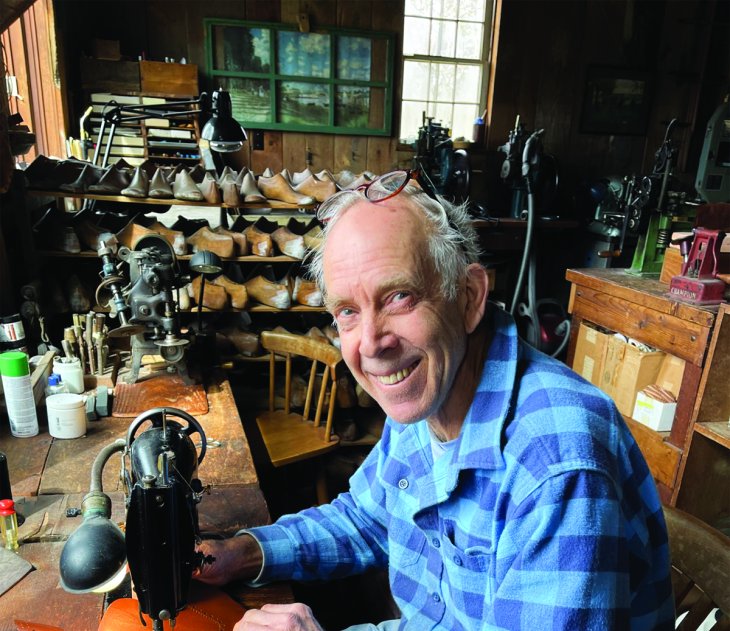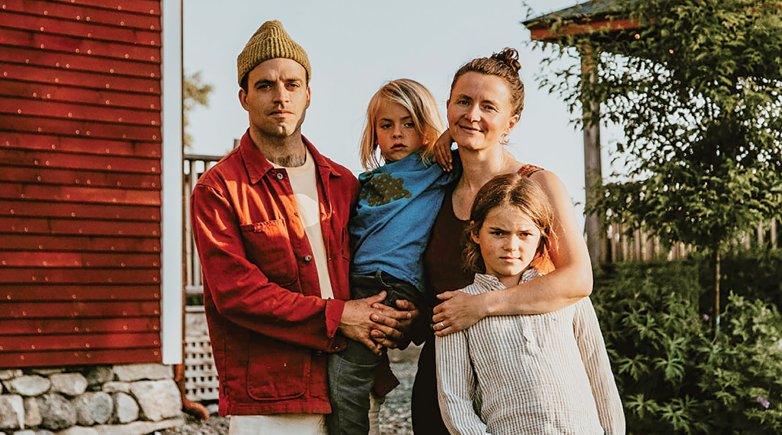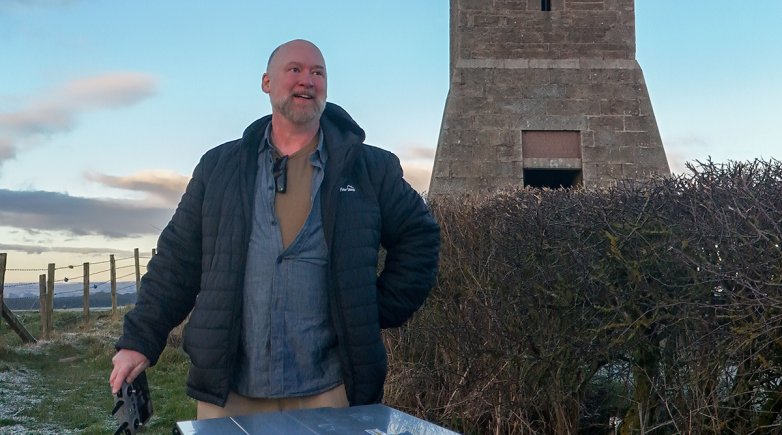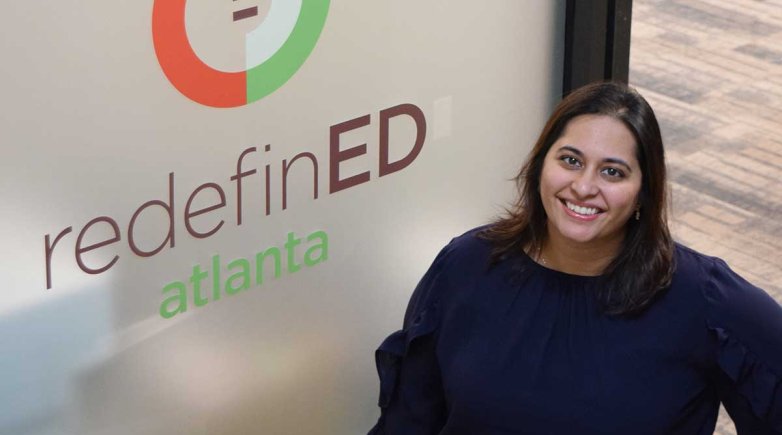Robert Mathews

"It’s a tricky business to fit a shoe to somebody. You have to get a feel for what they like and don’t like.”
Down a rolling scenic lane in a New Hampshire town just 30 minutes from Exeter, in a studio tucked within a restored farmstead, Robert Mathews ’69 makes exquisite handmade shoes for customers around the world — just as he has for almost 50 years.
The idea might seem romantic, even antiquated, in an era of fast fashion. But Mathews’ shoemaking business is surprisingly forward-looking, offering a model for sustainability and thoughtful consumption. The studio, along with his entire homestead, runs on solar energy powered by 85 panels installed along the roof of the 100-foot barn. The buildings include several antique timber frames, rescued and rebuilt by Mathews and his wife, Barbara.
Inside, Mathews crafts bespoke footwear by hand from a vast inventory including fine French and Italian leathers, and exotic materials like ostrich from South Africa. Each pair costs upwards of $1,500 but can last for a decade or even longer with repairs. The process starts with a personal fitting and molds of the feet from which Mathews produces a custom pattern. Clients then choose a design. His portfolio ranges from classic iterations of sandals, loafers, boots and oxfords to colorful brogues and elaborate Victorian ankle boots swathed in autumn leaves. For a first-time customer, the entire process can take three to six months.
Shoemaking has long been a family trade, passed down from Mathews’ grandfather, who studied foot health and shoe design in the 1920s and ’30s. “He was ahead of his time in realizing that the shoes people were wearing were distorting their feet,” Mathews says. “He concluded that the more primitive types of footwear, like sandals and moccasins, are actually better for people’s feet.” Mathews, who is certified in pedorthics, echoes that emphasis on biomechanics in his designs, though the artistic potential of the craft has always been most compelling to him.
At Exeter in 1967, Mathews explored all the arts, performing with the glee club and taking sculpture class with Cabot Lyford. He described himself as an “aspiring hippie with long hair, homemade bell-bottoms and a countercultural bent.” On the side, he sold handmade sandals at a craft store downtown.
Mathews was accepted at Middlebury College but deferred enrolling for a year after graduation in 1969. He spent three months hitchhiking through Europe, ending up in Matala, Greece. There he met folk musician Joni Mitchell, who was renting a cottage on the beach. “She imparted some words of wisdom to the effect that ‘Happiness is elusive. If it finds you, follow it,’” he says. “So I did.”
He returned to the U.S. and attended Middlebury just long enough to meet his future wife, Barbara Good. He soon left college, finding the experience unchallenging. After Barbara graduated, they married and moved into an old farmhouse in Deerfield, New Hampshire, with a woodstove, an outhouse and well water, retrieved by rope and bucket. “We joined the ‘back to the land’ movement of the era,” Mathews says, “growing our food and milking a cow.”
As their three children grew older, the couple put more energy into shoemaking. Barbara became the business manager, arranging exhibitions at prestigious places like the Smithsonian Craft Show in Washington, D.C. They became regulars on the craft show circuit, building a loyal following of clients that keeps them busy to this day. “We always encourage people to come to the studio in person, if they can,” Mathews says. “It’s a tricky business to fit a shoe to somebody. You have to get a feel for what they like and don’t like.”
Next year will be the couple’s 50th year in operation. “We’re slowing down a little,” Mathews says. “Getting to the point where I don’t mind slowing down a little.” Many clients will be disappointed when he retires, but his seven grandchildren are making growing claims on his time. “They love visiting here,” Mathews says. “We provide them with a safe haven — lots of open space around our country life.”
Consider the shoemaker’s happiness found.
— Danielle Cantor
Editor's Note: This article was originally published in the Spring 2024 issue of The Exeter Bulletin.



